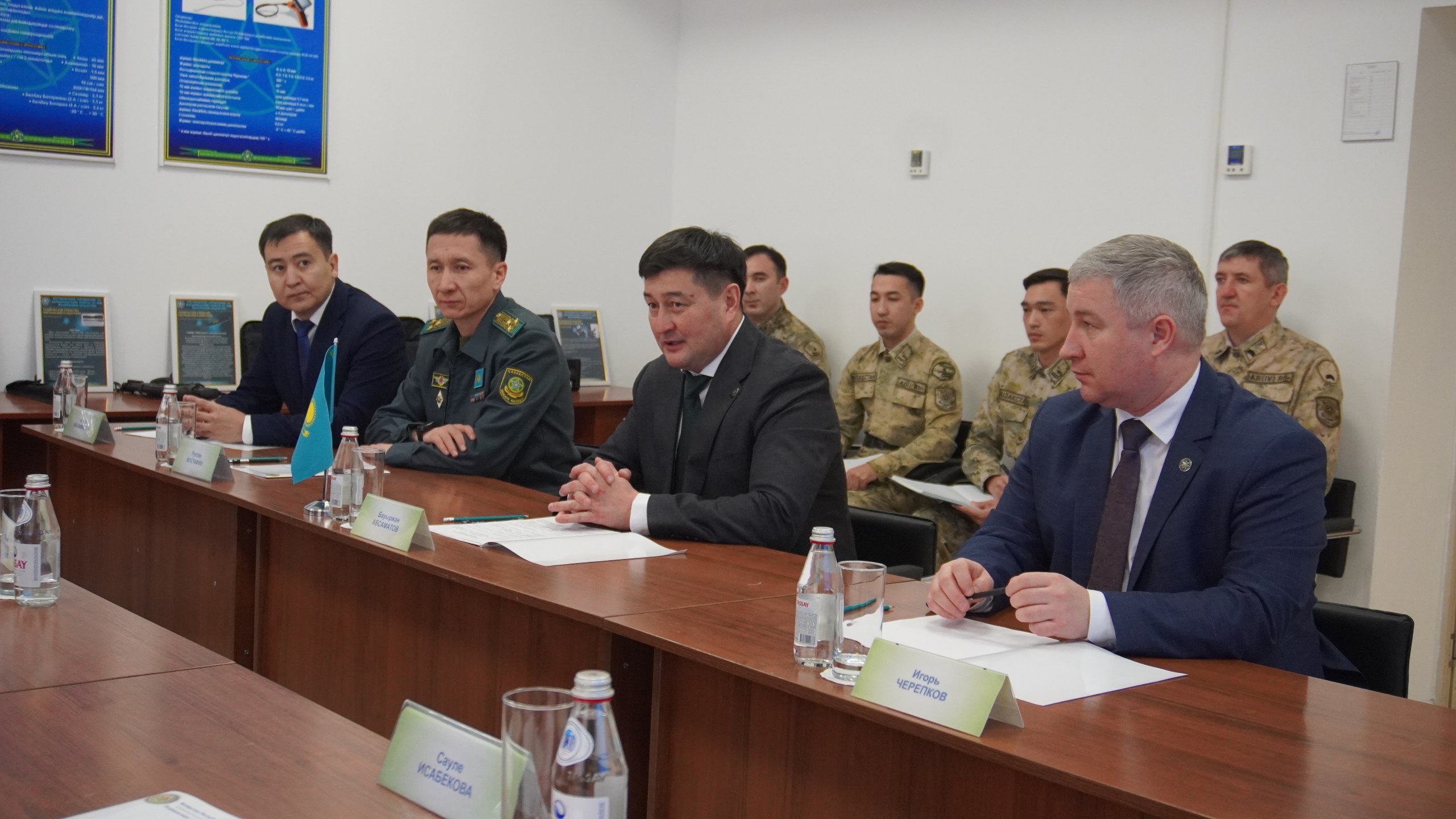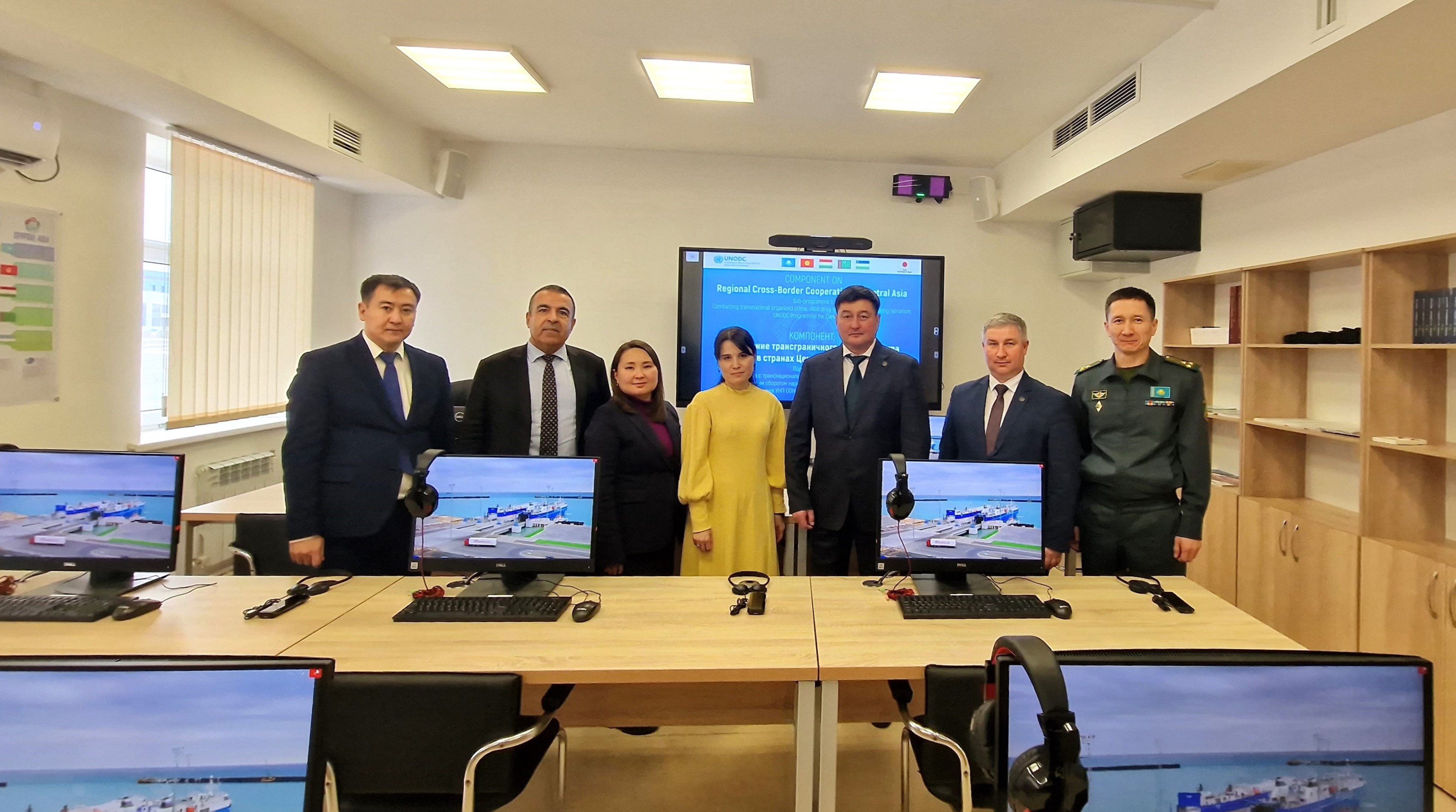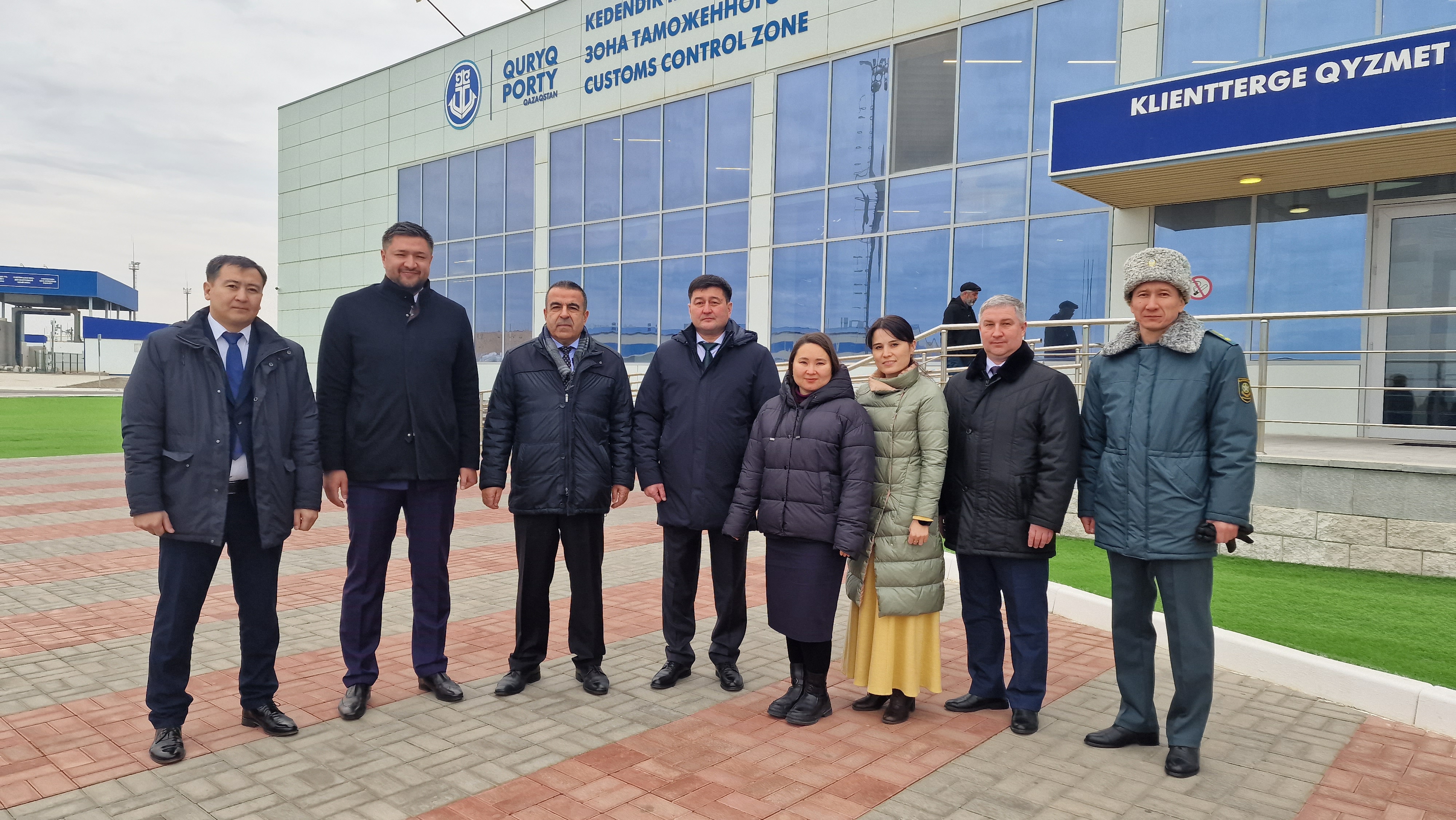UNODC opens computer-based training class at the Quryq seaport
On 6 December 2023, UNODC and the Border Service of the National Security Committee of the Republic of Kazakhstan opened an interactive computer-based training (CBT) class at the Quryq* seaport in the Caspian Sea Basin.



Serik Akhmetov, Director General of the Quryq Seaport LLP., noted that the construction of the national ferry boats and linkspan bridges at the seaport would provide for opening new transport routes, increasing national export potential, and improving transport security. He conducted a short excursion and showed the seaport facilities to the visitors.



In his opening remarks, Bauyrzhan Absamatov, Deputy Head of the Border Service of the National Security Committee of the Republic of Kazakhstan, thanked UNODC and the Government of Japan for unwavering support and financial contribution. He emphasized that the UNODC Regional Cross-Border Cooperation Project contributes to implementing “a smart border concept” and improving border control to shield against international terrorism, illicit drug trafficking, irregular migration, and other crimes. Thanks to the UNODC’s support in establishing border liaison offices (BLO) and computer-based training classes, the border officers are highly motivated to enhance their professional capacities. Thus, 940 kg of narcotic drugs were seized at the borders in 2023 by the officers either stationed at the BLOs or trained in the CBT classes. The management of the Border Service took a decision to set up regional training centers based on the established CBT classes in Kordai, Saryagash and Quryq.

“The interactive computer-based training class at the Quryq seaport covers all border checkpoints in the Mangystau region and the western part of Kazakhstan. Eighty-six border officers have undergone training since it became technically operational in February 2023,” noted Ruslan Mustafin, Deputy Head of the Border Service Department for the Mangystau region.

Yusuf Kurbonov, UNODC International Programme Coordinator, thanked the Government of the Republic of Kazakhstan for its longstanding partnership with UNODC and achievements in the implementation of the UNODC projects. Mr. Kurbonov emphasized the UNODC’s commitment to further fostering greater cross-border cooperation of national stakeholders in the region through extended support in the capacity development of officers and the provision of specialized training courses and technical equipment. He informed about the further project development and reiterated the UNODC’s efforts to continue supporting important initiatives such as rolling out the BLO coordination and situation centers, expanding the CBT classes’ network, developing the My Border mobile application, strengthening border control along the green borders and creating regional information and communication system jointly with the Central Asian Regional Information and Coordination Centre for Combatting Illicit Trafficking of Narcotic Drugs, Psychotropic Substances and their Precursors (CARICC). He highlighted important regional events planned for the first quarter of 2024 and underlined the significance of arranging a series of regional and national activities on training instructors for CBT classes.


The participants of the opening ceremony also discussed the prospect of interlinking all BLOs and CBT classes with the Situation Center at the Border Service, as well as possibilities for updating and translating training modules into the Kazakh language.

The initiative for the establishment of CBT classes has been implemented in Kazakhstan since June 2016. As of today, UNODC, in close cooperation with national counterparts and with the financial support of the Government of Japan, has established four computer-based training classes in Kazakhstan - at the Kordai and Sypatai Batyr border crossing points on the Kazakh-Kyrgyz border, at B. Konysbayev border crossing point on the Kazakh-Uzbek border and the newly opened class at the Quryq seaport.
CBT classes are established under the Regional Project on Enhancing Cross-Border Cooperation by Strengthening the Capacity of Border Liaison Offices in Central Asia of Sub-programme 1 Preventing and Countering Transnational Organized Crime of the UNODC Programme for Central Asia 2022-2025.




*The Quryq seaport is a core logistics hub and an important chain on the Transcaspian International Transport Route. The seaport is a unique harbor that unites seaways, railways and motorways connecting the countries along the Caspian Sea border - Azerbaijan, Georgia, Iran, the Russian Federation, Turkmenistan, and Uzbekistan. The seaport is the end point of the green border of the whole Central Asian region, and it was certified as an EcoPort. In addition, it is an integral part of the MorPortAktau Free Economic Zone. The annual cargo turnover at the seaport is around two million tons. The seaport’s cargo turnover for the seven months of 2023 totaled 1.3 million tons. The transport flow (vehicles) at the seaport totaled 15,283.00 vehicles for seven months of 2023. It is anticipated that the flow will reach 30,000.00 vehicles by the end of 2023. Based on the decision of the Government of the Republic of Kazakhstan, the grain terminal with an annual capacity of up to one million tons is in the process of construction at the seaport.

For further information, please contact:
Nurangez Abdulhamidova
Communications and External Relations Specialist
UNODC Regional Office for Central Asia
Email: nurangez.abdulhamidova[at]un.org